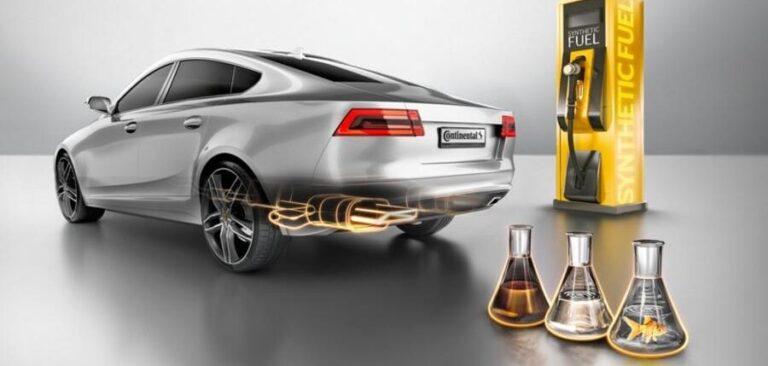The internal combustion engine has been with us for a long time. It’s transported the wood and bricks to build our house, the furniture to fill it and, for very many people, it gets us to and from work. Superficially, it has been a force for good. What we didn’t appreciate until relatively recently, was that it was also harming the planet we live on, mainly through the emissions of greenhouse gases.
Electric cars are the future, we are told. Their emissions are created elsewhere, so our towns and cities become cleaner. I accept this. In cities, particulates, hydrocarbons and nitrogen oxides (NOx) are the culprits.
I’ll get one thing out in the open now. I spend much of my time designing engines to make a living. Before you judge me to be blinded by my personal situation and totally biased, consider what else I do for a living. I design electric motors, often to help improve the efficiency of cars. I see both sides of the argument and arguably have nothing to lose. Electric motors are easier to design; they don’t need to contain thousands of explosions every minute like an engine does. I like working on their design.
Apart from the interesting mechanical machine that the internal combustion engine surely is, and the infinite challenges in their design, the best thing about it is nothing about the engine itself. The best part is the fuel. Not because of its potential to cause harm, but its energy density and the fact that it is relatively safe and easy to handle. The energy storage for our engine is what makes the engine viable. The worst bit is the engine. It is complex and inefficient, although great strides have been made in efficiency in recent years.
The best thing about a battery electric vehicle (BEV) powertrain is the electric motor. The worst bit is the battery. Compared with hydrocarbon fuels, the energy density of a lithium-ion battery is poor. It needs a lot of volume for a decent range and it needs a lot of time to recharge it. There are various opinions about the use of lithium which are best researched elsewhere, but the lithium-ion battery is the best we have at present. There are well-documented examples of people subjected to hellish journeys where charging has proven difficult or impossible. Range anxiety is real in any country where the infrastructure creaks under the load.
Fuel cell vehicles, using hydrogen as a fuel, are maybe another way forward. They emit only water, so are certainly very friendly in a city. However, the fuel has an incredibly low density and needs to be stored at huge pressure. While the fuel in the tank is light, the tank is certainly not.
So, what about renewable hydrocarbon fuels? Alcohols can be made from organic matter, but we can’t justify sowing fuel crops while displacing food crops in a world where people are still starving. Production of fuel alcohols from agricultural waste products is one way forward, although yet to be perfected and industrialized.
All of the ingredients exist in air to produce alcohols, gasoline, jet fuels etc, although the chemistry is complex and energy intensive. We should encourage any activity which takes CO2 out of the air, even if it is soon to be returned there. Why? Because such chemical processes can also produce feedstocks for polymer (plastic) production or long-chain liquid hydrocarbons. Once we can take CO2 from the air and put it back in the ground, or build with it, we have started to really reverse the problem.
IC engines, freed of the target to reduce CO2 emissions, could concentrate on mitigating NOx, hydrocarbon and particulate emissions.
Engines can be very easily recycled and they are relatively reliable. If they are carbon-neutral, in many ways there are an ideal solution.
Whatever happens, everyone is agreed that CO2 emissions must reduce quickly. However, the best way to do this is to set the targets and ways to measure progress scientifically. Defining the route to CO2 reduction, prescribing EVs and proscribing IC engines may have unintended consequences and might rule out some very promising technologies.
It seems to be accepted that long-distance air travel will continue and can be made net-zero by using synthetic fuels, so why not passenger transport? Why the rush to lithium?
Air-travel is still likely to rely on net-zero hydrocarbon fuels for as far into the future as anyone can see and there appears to be no uproar about that by politicians or the holiday-taking public.
There is a real prospect that without CO2 targets, we can clean up the NOx, hydrocarbon and particulate emissions of IC engines. So, if renewable fuels are available, why not use them? Reliable, cheap to produce and easy to recycle, if the fuel burned in IC engines becomes carbon-neutral, what is not to like?
I don’t pretend that EVs won’t form an important part of a climate-friendly future, but they are almost certainly not “the whole answer” to the atmospheric CO2 problem, especially when the lithium battery is the best we can do as an energy store.
Neither the production process to make synthetic gasoline, nor its industrialization, are mature. Equally immature are the infrastructure to support a transport network which is largely electrified and the generating capacity to keep everyone moving.
Nobody seems willing to contemplate a future where we simply travel many fewer miles. A mixture of battery EVs, fuel cell EVs and hybridized IC engines burning renewable fuel for non-city journeys might give us what we need.


